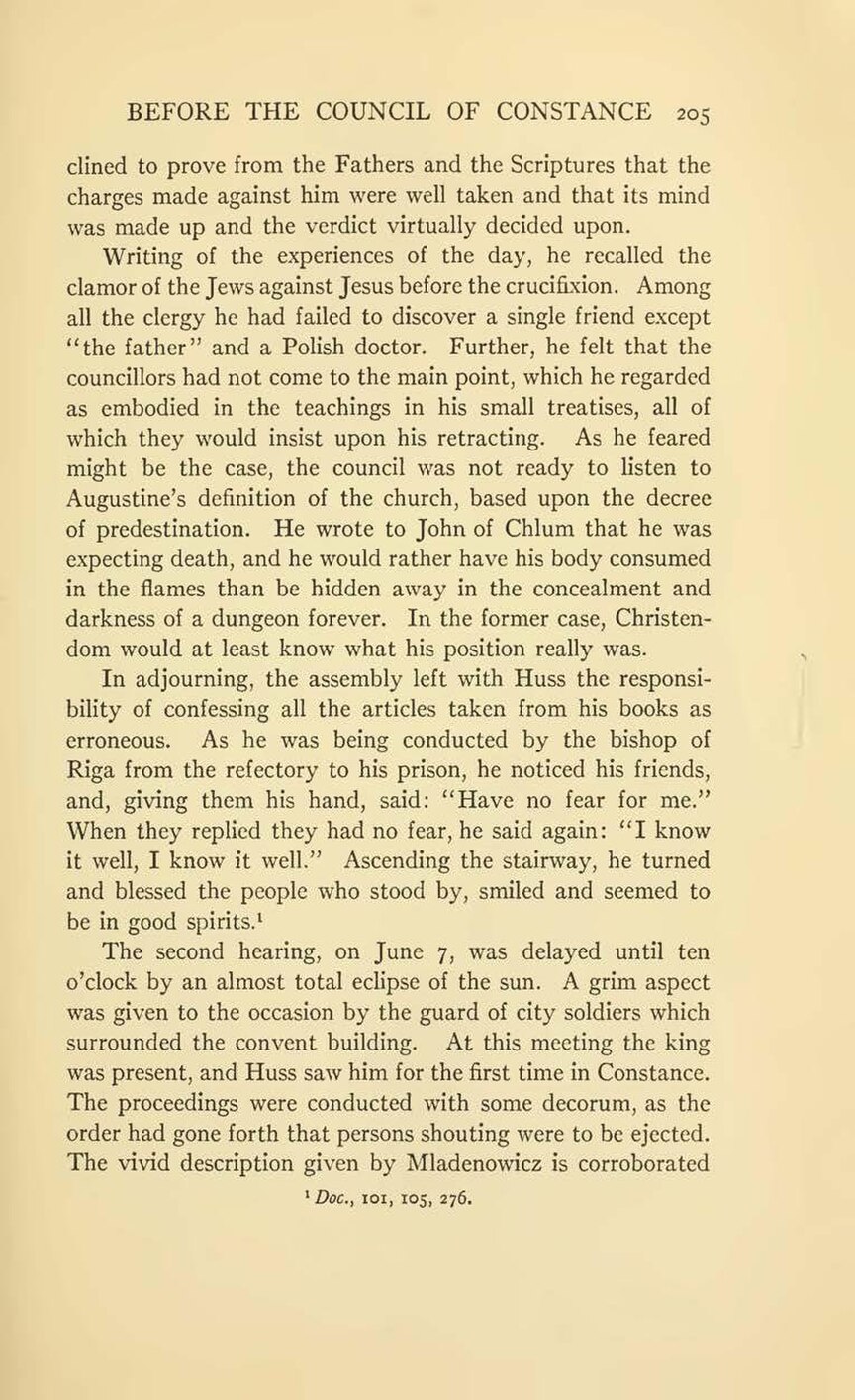clined to prove from the Fathers and the Scriptures that the charges made against him were well taken and that its mind was made up and the verdict virtually decided upon.
Writing of the experiences of the day, he recalled the clamor of the Jews against Jesus before the crucifixion. Among all the clergy he had failed to discover a single friend except “the father” and a Polish doctor. Further, he felt that the councillors had not come to the main point, which he regarded as embodied in the teachings in his small treatises, all of which they would insist upon his retracting. As he leared might be the case, the council was not ready to listen to Augustine’s definition of the church, based upon the decree of predestination. He wrote to John of Chlum that he was expecting death, and he would rather have his body consumed in the flames than be hidden away in the concealment and darkness of a dungeon forever. In the former case, Christendom would at least know what his position really was.
In adjourning, the assembly left with Huss the responsibility of confessing all the articles taken from his books as erroneous. As he was being conducted by the bishop of Riga from the refectory to his prison, he noticed his friends, and, giving them his hand, said: “Have no fear for me.” When they replied they had no fear, he said again: “I know it well. I know it well.” Ascending the stairway, he turned and blessed the people who stood by, smiled and seemed to be in good spirits.[1]
The second hearing, on June 7, was delayed until ten o’clock by an almost total eclipse of the sun. A grim aspect was given to the occasion by the guard of city soldiers which surrounded the convent building. At this meeting the king was present, and Huss saw him for the first time in Constance. The proceedings were conducted with some decoruni, as the order had gone forth that persons shouting were to be ejected. The vivid description given by Mladenowicz is corroborated
- ↑ Doc., 101, 105, 276.
